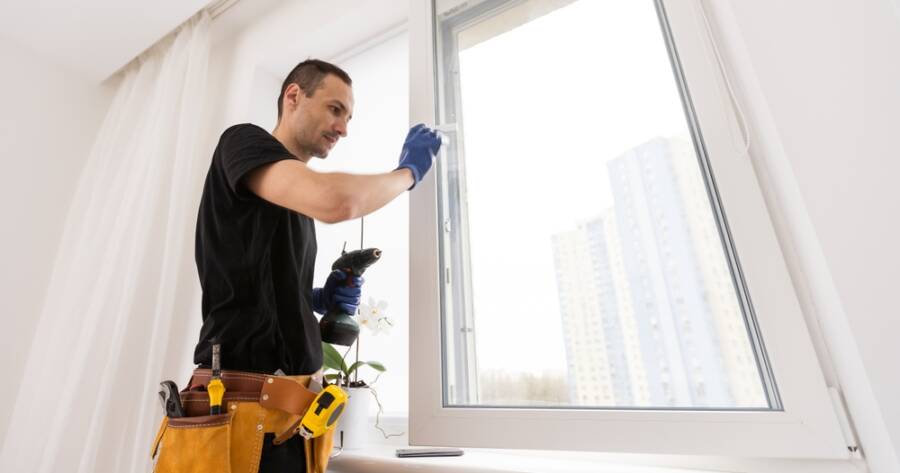Save money and reduce your environmental footprint with energy-efficient home upgrades. From installing smart thermostats to upgrading insulation and windows, these improvements help lower energy bills while making your home more comfortable and eco-friendly.
What Are Energy-Efficient Home Upgrades?
Energy-efficient home upgrades refer to modifications made to a residence that enhance its energy performance, thereby reducing energy consumption and costs. These upgrades can include a variety of improvements such as better insulation, energy-efficient windows, high-efficiency heating and cooling systems, and the installation of energy-efficient appliances.1 The goal of these upgrades is to minimize energy waste while maintaining or improving comfort levels within the home. Recent advancements in technology have led to the development of smart home systems that optimize energy use, further contributing to energy efficiency.
In recent years, the focus on energy-efficient upgrades has intensified due to growing concerns about climate change and rising energy costs. Homeowners are increasingly seeking ways to reduce their reliance on fossil fuels and lower their utility bills. Furthermore, many local and federal programs offer incentives for homeowners to invest in these upgrades, making them more accessible and appealing.
Energy-efficient upgrades not only benefit individual homeowners but also contribute to broader environmental goals. By reducing energy consumption, these upgrades help decrease greenhouse gas emissions associated with energy production. As more homeowners adopt energy-efficient practices, the cumulative effect can lead to a significant reduction in the overall carbon footprint of residential buildings. This shift towards energy efficiency is supported by various studies highlighting the importance of sustainable living practices in combating climate change.
Benefits of Energy-Efficient Upgrades for Your Home
The benefits of energy-efficient upgrades extend beyond mere cost savings on utility bills.2 One of the primary advantages is the enhancement of indoor comfort. Improved insulation and energy-efficient windows can help maintain a consistent temperature throughout the home, reducing drafts and cold spots. This not only creates a more pleasant living environment but also contributes to better air quality by minimizing the infiltration of outdoor pollutants.
Additionally, energy-efficient upgrades can increase the overall value of a home. Real estate experts have noted that homes equipped with energy-efficient features often attract more buyers and can command higher sale prices. This trend is supported by a growing awareness among consumers about the importance of sustainability and energy efficiency in their purchasing decisions. As a result, homeowners who invest in these upgrades may find that they yield a favorable return on investment when it comes time to sell.
Moreover, energy-efficient upgrades can lead to a more sustainable lifestyle. By reducing energy consumption, homeowners contribute to the conservation of natural resources and the reduction of environmental impact. This aligns with the increasing societal emphasis on sustainability and responsible living. Many homeowners are motivated by the desire to leave a healthier planet for future generations, making energy-efficient upgrades not just a financial decision but also a moral one.
Save Money and Reduce Your Carbon Footprint with Smart Upgrades
Smart upgrades in energy efficiency can lead to significant financial savings for homeowners. By investing in smart thermostats, energy-efficient appliances, and home automation systems, individuals can optimize their energy usage. These technologies allow for real-time monitoring and control of energy consumption, enabling homeowners to make informed decisions about their energy use.
In addition to financial benefits, smart upgrades play a crucial role in reducing an individual’s carbon footprint. By utilizing energy-efficient technologies, homeowners can decrease their reliance on fossil fuels, which are a major contributor to greenhouse gas emissions. The integration of renewable energy sources, such as solar panels, further enhances this effect by providing clean energy alternatives. As more homeowners adopt these practices, the collective impact can lead to a significant reduction in carbon emissions at the community and national levels.
Furthermore, the long-term benefits of smart upgrades extend beyond immediate savings and environmental impact. Many energy-efficient technologies are designed to be durable and require less maintenance, leading to lower long-term costs. Homeowners can enjoy peace of mind knowing that their investments not only contribute to a sustainable future but also enhance the overall efficiency and comfort of their homes. This holistic approach to home improvement aligns with the growing trend of environmentally conscious living.
Learn More About Energy-Efficient Upgrades
For those interested in exploring energy-efficient upgrades further, numerous resources are available. Home improvement guides, energy audits, and consultations with energy efficiency experts can provide valuable insights into the best options for specific homes. Engaging with local energy programs and incentives can also help homeowners make informed decisions about their upgrades. By staying informed and proactive, individuals can contribute to a more sustainable future while enjoying the benefits of energy efficiency in their homes.
